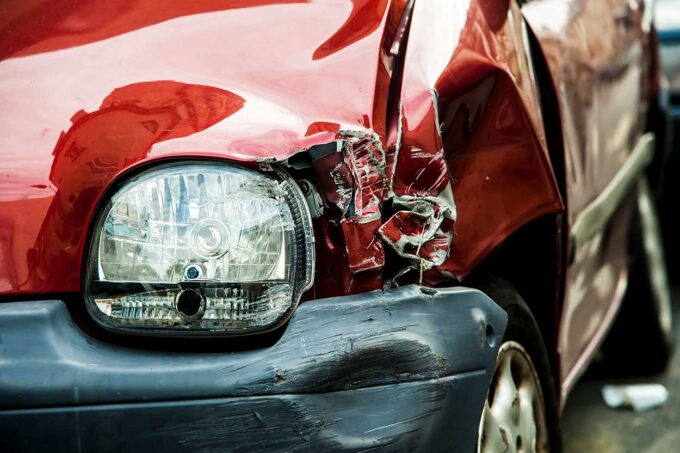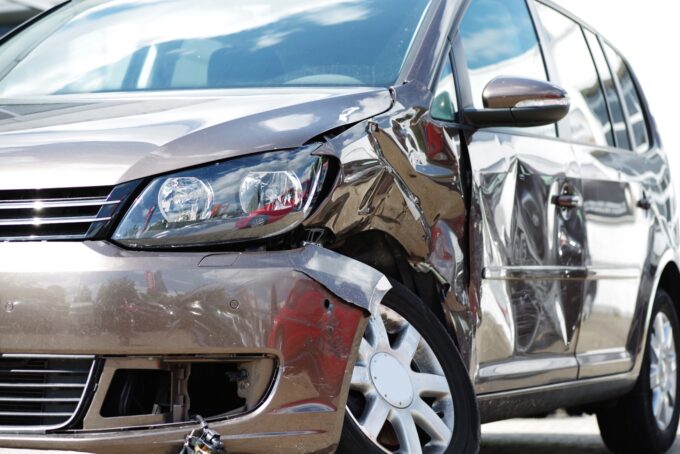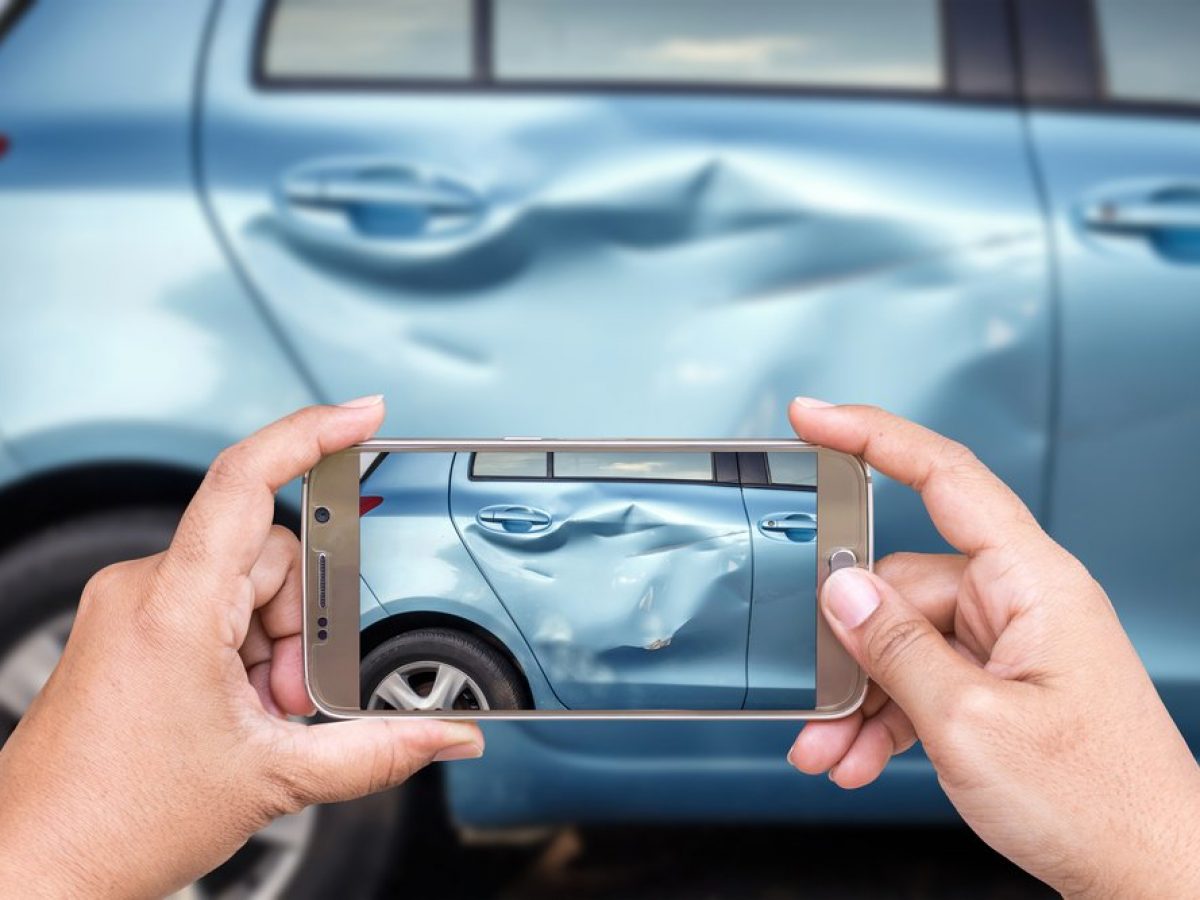Determining fault in a car accident is a complex process that involves a variety of factors. While car accident damage can provide elemental evidence in this determination, it is not the sole or definitive factor. Instead, it is just one piece of the puzzle that investigators and insurance companies use to establish fault. Here, we will explore how car accident damage can play a role in determining fault, but also discuss the other key factors involved.
The Role of Car Accidents in Determining Fault
1. Eyewitness Testimony

Eyewitnesses can assure valuable information about the events leading up to and following a car accident. Their statements can aid in clarifying who may have been at fault. Witnesses may be able to confirm whether a driver ran a red light, failed to yield, or was speeding, for example.
2. Police Reports
Law enforcement officers who respond to the scene of an accident typically create accident reports. These reports include details about the accident, statements from drivers and witnesses, and sometimes even preliminary assessments of fault. While the police report is not the final word on fault, it is an elemental document used by insurance companies and investigators.
3. Traffic Laws
Traffic laws exist to regulate the behavior of drivers on the road. Violating these laws can establish fault in an accident. For example, if one driver rear-ends another because they were following too closely, they are typically considered at fault, as they violated the rule of maintaining a safe following distance.
4. Vehicle Damage

Car accident damage can be indicative of how the accident occurred. For instance, if one car has front-end damage, and the other has rear-end damage, it often suggests that one car may have collided with the other from behind, implying fault on the part of the rear driver. However, it is important to note that vehicle damage alone cannot definitively determine fault. It needs to be considered alongside other evidence.
5. Insurance Company Investigations
Insurance companies conduct their own investigations when processing claims. They consider all available evidence, including vehicle damage, witness statements, and police reports, to determine fault. Keep in mind that insurance companies have a vested interest in minimizing payouts, so their conclusions may not always rank with the legal determination of fault.
6. Comparative Fault Laws
Some states have comparative fault laws, which assign a percentage of fault to each party involved in an accident. In these cases, even if one driver is primarily at fault, the other may share some degree of responsibility. The compensation awarded to each party is then adjusted accordingly.
What are the most common car accident damages?

1. Vehicle Damage
This is the most obvious form of damage in a car accident. It can include everything from minor dents and scratches to more severe damage like crushed fenders, twisted frames, or total vehicle loss (when the cost of repairs exceeds the car’s value).
2. Personal Injuries
Car accidents often lead to injuries to drivers and passengers. Common injuries include whiplash, fractures, concussions, bruises, cuts, and more severe injuries like spinal cord injuries or traumatic brain injuries.
3. Lost Wages
Car accident injuries can lead to missed work, and the resulting lost income can be a significant financial burden. This damage may also encompass the loss of future earning capacity if the injuries result in a long-term or permanent disability.
4. Loss of Consortium
In the realm of personal injury law, “loss of consortium” is a category of damages that seeks to compensate the spouse or family members of an injured individual for the deprivation of companionship, affection, and support resulting from the accident. This form of compensation acknowledges the emotional and relational toll that an accident can take on the injured person’s loved ones, recognizing their suffering and loss in addition to the physical and financial damages incurred.
5. Emotional and Psychological Trauma

Car accidents can leave lasting scars not just on the body, but on the mind as well. Victims often experience emotional and psychological trauma in the aftermath of a collision. This trauma can manifest in various ways including post-traumatic stress disorder (PTSD), anxiety, depression, and phobias related to driving or traveling in cars. The weight of these emotional burdens can be as debilitating as physical injuries, requiring therapy and counseling for recovery. Recognizing and addressing these non-physical injuries is crucial for comprehensive healing after an accident.
How to find a skilled car accident lawyer?
Finding a skilled car accident lawyer is crucial if you’ve been involved in a car accident and need legal representation. Here are steps to help you find the right attorney:
1. Seek Recommendations
Commence your search by reaching out to friends, family members, or colleagues for recommendations. Personal referrals hold significant value as they originate from individuals within your trusted circle who have firsthand experience with an attorney. These recommendations can serve as a valuable starting point in your quest to find a skilled car accident lawyer.
2. Online Research

Use online resources to research car accident lawyers in your area. Look for lawyers or law firms that specialize in personal injury or car accident cases. Read reviews and check their websites to learn more about their experience and expertise.
3. Ask About Experience
Inquire about the attorney’s experience specifically with car accident cases. If you want someone who has a track record of successfully handling similar cases and is knowledgeable about personal injury law, consult skilled car accident lawyer in Orlando.
4. Evaluate Past Client Reviews

When searching for a skilled car accident lawyer, it’s essential to consider feedback from past clients. Reviews and testimonials provide firsthand insight into the attorney’s competence, dedication, and ability to handle cases effectively. Positive reviews, especially ones detailing specific experiences, can be a reliable indicator of the lawyer’s expertise and client satisfaction.
5. Check their Specialization
A general practice attorney might not have the depth of knowledge required for specific cases like car accidents. Look for lawyers who specialize in personal injury or car accident cases. A specialized attorney will be more knowledgeable about the nuances of car accident claims, ensuring you get the best representation possible.
Schedule a Consultation
Before making a decision, meet with potential lawyers in person or through a virtual consultation. This gives you an opportunity to gauge their professionalism, understand their approach, and ask any pertinent questions. This face-to-face interaction can also give you a sense of their dedication to your case and whether they’re a good fit for your needs.









